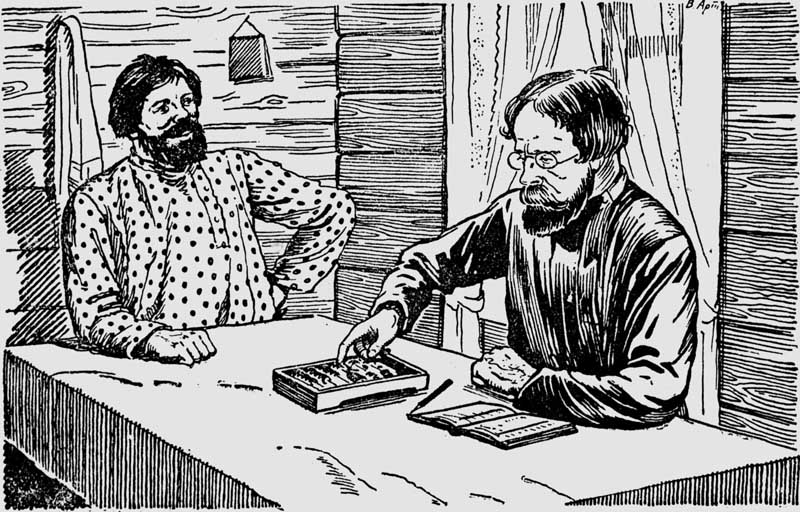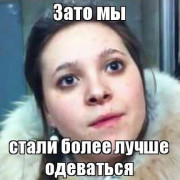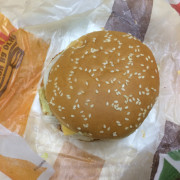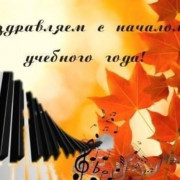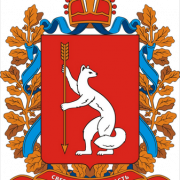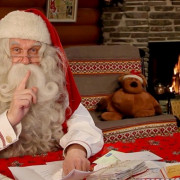Holidays and observances in united states in 2019
Содержание:
- What Do People Do?
- International Women’s Day
- Background
- What Do People Do?
- Holidays in Russia — Overview
- Symbols
- Father Frost and presents
- Holidays and Observances in Russia in 2020
- Symbols
- Orthodox Easter
- List of Holidays in Russia in 2020
- Additional holidays and days off
- Childcare during school holidays in Russia
- Ivan Kupala
- How Russians celebrate New Year
- Spring and Labor Day
- Introduction to Russian public holidays
- Defender of the Fatherland Day
- List of National Holidays in Russia in 2019
- Tuesday January 1st New Year’s Day
- Wednesday January 2nd New Year’s Holiday (Bridge Day)
- Thursday January 3rd New Year’s Holiday (Bridge Day)
- Friday January 4th Long Weekend! New Year’s Holiday (Bridge Day)
- Monday January 7th Long Weekend! Orthodox Christmas
- Tuesday January 8th New Year’s Holiday (Bridge Day)
- Saturday February 23rd Defence of the Fatherland Day
- Friday March 8th Long Weekend! International Women’s Day
- Wednesday May 1st Day of Spring and Labor
- Thursday May 2nd Public Holiday
- Friday May 3rd Long Weekend! Public Holiday
- Thursday May 9th Victory Day
- Friday May 10th Long Weekend! Public Holiday (Bridge Day)
- Wednesday June 12th Russia Day
- Monday November 4th Long Weekend! Day of Unity
- Victory Day
- Public Life
- What Do People Do?
- Background
- Background
- Victory Day
- What Do People Do?
What Do People Do?
Many people attend a local military parade and watch the fireworks at night on Victory Day. The biggest parade is in Moscow’s Red Square, showcasing Russia’s military forces. Most veterans wear their medals as they head to the parade or an event organized by a local veteran organization.
Another tradition is to give flowers, usually red carnations, to veterans in the street and to lay wreaths at the war memorial sites. Neighborhood schools may host a program prepared by the students, featuring wartime songs and poetry.
At home, families gather around a festive table to honor surviving witnesses of World War II and remember those who passed away. They may also watch a favorite Soviet film based on the events of World War II, which is also known as the Great Patriotic War. These films are repeated each year but the audience seems to never grow tired of them.
International Women’s Day

The 8th of March is known as International Women’s Day. It seems as though only in Russia is this holiday celebrated so widely! I’ve never seen any big celebration in Europe or the United States on this day. Although historically this day manifested women’s solidarity and proclaimed fight for equal rights and emancipation, nowadays it appears to be all about femininity, flowers and gifts. Thsi is the day when all men in Russia suddenly realize how great all those women around them are and get flowers and presents for their ladies, daughters, female colleagues and actually any woman they know. Women all look gorgeous and are dressed very well on this day, because they are surrounded with flowers and that special man’s attention! When it comes to celebrating here, any way is a good way. A home-cooked dinner, a romantic restaurant, a bar with good friends, a night club, or a walk in the park on a nice day – anything that you feel like doing is fitting and some wine is, of course, consumed to provide for a relaxing mood!
Background
On June 12, 1990 Soviet leaders signed a declaration of Russiaâs state sovereignty. That document symbolized the beginning of democratic reforms in Russia. It also marked one of the first steps to the official dissolution of the Soviet Union. June 12 became a public holiday in 1994, but many people either did not understand its meaning or refused to celebrate it.
To promote June 12 as a patriotic holiday, Russia’s first president Boris Yeltsin suggested renaming it to Russia Day in 1997 (the holiday’s original name was the Day of Signing the Declaration of State Sovereignty). The renaming took place in 2002 when the Russian Parliament adopted a new version of Russia’s Labor Code.
What Do People Do?
Russia Day is an occasion for many Russians to demonstrate national pride. Some people celebrate Russia’s economic and social achievements and pay tribute to famous Russians on June 12. People may attend concerts and fireworks that take place in many cities throughout the country. Prominent Russian writers, scientists and humanitarian workers receive a National Award from the Russian president on this day. Yet many other people see Russia Day as nothing more than a day off.
Many Russians refused to celebrate this holiday when it was introduced in 1994. For them it was the day when their leaders agreed to the dissolution of the Soviet Union. The demise of the Soviet Union led to unemployment and poverty of many Russians. People who oppose celebrating June 12 spend time in their countryside houses (dachas) or do other outdoor activities.
Holidays in Russia — Overview
Holidays and memorable days of Russia are officially established in Russia holidays, professional holidays, memorable days, memorable dates, and days of military glory (victorious days) of Russia.
Non-working holidays in Russia are additional days off associated with the holidays and listed in the Labor Code of Russia. In addition to non-working holidays, there are working holidays in Russia — holidays that are not additional days off, but solemn events are still held.
Professional holidays are established in recognition of the merits of workers in the branches of the national economy and various fields of activity.
Memorable days are set in honor of significant events and dates in world history or the history of Russia. On June 22, the Day of Remembrance and Grief (the day of Nazi Germany’s attack on the USSR), there are no entertainment programs on TV and radio.
Memorable dates of Russia are officially established memorable dates in the history of Russia, connected with the most important historical events in the life of the state and society.
Symbols
The Russian flag and a two-headed eagle, the state symbols of the Russian Federation, are the most common symbols of Russia Day.
Russia Day Observances
| Year | Weekday | Date | Name | Holiday Type |
|---|---|---|---|---|
| 2015 | птн | 12 июн | Russia Day | National holiday |
| 2016 | вск | 12 июн | Russia Day | National holiday |
| 2016 | пнд | 13 июн | Day off for Russia Day | National holiday |
| 2017 | пнд | 12 июн | Russia Day | National holiday |
| 2018 | втр | 12 июн | Russia Day | National holiday |
| 2019 | срд | 12 июн | Russia Day | National holiday |
| 2020 | птн | 12 июн | Russia Day | National holiday |
| 2021 | сбт | 12 июн | Russia Day | National holiday |
| 2021 | пнд | 14 июн | Day off for Russia Day | National holiday |
| 2022 | вск | 12 июн | Russia Day | National holiday |
| 2022 | пнд | 13 июн | Day off for Russia Day | National holiday |
| 2023 | пнд | 12 июн | Russia Day | National holiday |
| 2024 | срд | 12 июн | Russia Day | National holiday |
| 2025 | чтв | 12 июн | Russia Day | National holiday |
Father Frost and presents

We cannot imagine the Russian New Year without father Frost and presents. In our article “How to say Merry Christmas and a Happy New Year in Russian” we mentioned that in Russia we give presents not for Christmas but for the New Year. If in the USA Santa Claus brings present, in Russia it is Father Frost with his granddaughter Snegurochka. Unlike Santa, Farther Frost wears a long blue coat, carries a long staff and travels in a carriage pulled by three horses.
Presents are usually put under the New Year tree where children later find them. Adults don’t need to follow this tradition – you can give presents personally when you come at people’s place.
Holidays and Observances in Russia in 2020
| Date | Name | Type | |
|---|---|---|---|
| 1 янв | среда | New Year’s Day | National holiday |
| 2 янв | четверг | New Year Holiday | National holiday |
| 3 янв | пятница | New Year Holiday | National holiday |
| 6 янв | понедельник | New Year Holiday | National holiday |
| 7 янв | вторник | Orthodox Christmas Day | National holiday, Orthodox |
| 8 янв | среда | New Year Holiday | National holiday |
| 14 янв | вторник | Old New Year | Observance |
| 14 фев | пятница | Valentine’s Day | Observance |
| 23 фев | воскресенье | Defender of the Fatherland Day | National holiday |
| 24 фев | понедельник | Day off for Defender of the Fatherland Day | National holiday |
| 27 фев | четверг | Special Operations Forces Day | Observance |
| 8 мар | воскресенье | International Women’s Day | National holiday |
| 9 мар | понедельник | Day off for International Women’s Day | National holiday |
| 20 мар | пятница | March Equinox | Season |
| 22 мар | воскресенье | Isra and Mi’raj | Muslim |
| 28 мар | суббота | Non-Working Day (COVID-19) | Paid leave |
| 29 мар | воскресенье | Non-Working Day (COVID-19) | Paid leave |
| 30 мар | понедельник | Non-Working Day (COVID-19) | Paid leave |
| 31 мар | вторник | Non-Working Day (COVID-19) | Paid leave |
| 1 апр | среда | Non-Working Day (COVID-19) | Paid leave |
| 2 апр | четверг | Non-Working Day (COVID-19) | Paid leave |
| 3 апр | пятница | Non-Working Day (COVID-19) | Paid leave |
| 4 апр | суббота | Non-Working Day (COVID-19) | Paid leave |
| 5 апр | воскресенье | Non-Working Day (COVID-19) | Paid leave |
| 6 апр | понедельник | Non-Working Day (COVID-19) | Paid leave |
| 7 апр | вторник | Non-Working Day (COVID-19) | Paid leave |
| 8 апр | среда | Non-Working Day (COVID-19) | Paid leave |
| 9 апр | четверг | Non-Working Day (COVID-19) | Paid leave |
| 10 апр | пятница | Non-Working Day (COVID-19) | Paid leave |
| 11 апр | суббота | Non-Working Day (COVID-19) | Paid leave |
| 12 апр | воскресенье | Non-Working Day (COVID-19) | Paid leave |
| 13 апр | понедельник | Non-Working Day (COVID-19) | Paid leave |
| 14 апр | вторник | Non-Working Day (COVID-19) | Paid leave |
| 15 апр | среда | Non-Working Day (COVID-19) | Paid leave |
| 16 апр | четверг | Non-Working Day (COVID-19) | Paid leave |
| 17 апр | пятница | Non-Working Day (COVID-19) | Paid leave |
| 18 апр | суббота | Non-Working Day (COVID-19) | Paid leave |
| 19 апр | воскресенье | Orthodox Easter Day | Observance, Orthodox |
| 19 апр | воскресенье | Non-Working Day (COVID-19) | Paid leave |
| 20 апр | понедельник | Non-Working Day (COVID-19) | Paid leave |
| 21 апр | вторник | Non-Working Day (COVID-19) | Paid leave |
| 22 апр | среда | Non-Working Day (COVID-19) | Paid leave |
| 23 апр | четверг | Non-Working Day (COVID-19) | Paid leave |
| 24 апр | пятница | Ramadan starts | Muslim |
| 24 апр | пятница | Non-Working Day (COVID-19) | Paid leave |
| 25 апр | суббота | Non-Working Day (COVID-19) | Paid leave |
| 26 апр | воскресенье | Non-Working Day (COVID-19) | Paid leave |
| 27 апр | понедельник | Non-Working Day (COVID-19) | Paid leave |
| 28 апр | вторник | Non-Working Day (COVID-19) | Paid leave |
| 29 апр | среда | Non-Working Day (COVID-19) | Paid leave |
| 30 апр | четверг | Non-Working Day (COVID-19) | Paid leave |
| 1 май | пятница | Spring and Labor Day | National holiday |
| 4 май | понедельник | Public Holiday (Moved from Jan 4) | Substitute Holiday |
| 5 май | вторник | Public Holiday (Moved from Jan 5) | Substitute Holiday |
| 9 май | суббота | Victory Day | National holiday |
| 11 май | понедельник | Day off for Victory Day | National holiday |
| 19 май | вторник | Lailat al-Qadr | Muslim |
| 24 май | воскресенье | Eid al-Fitr | Muslim |
| 12 июн | пятница | Russia Day | National holiday |
| 21 июн | воскресенье | June Solstice | Season |
| 24 июн | среда | Victory Day 75th Anniversary | National holiday |
| 1 июл | среда | Constitutional Referendum Holiday | National holiday |
| 31 июл | пятница | Eid al-Adha | Muslim |
| 20 авг | четверг | Muharram | Muslim |
| 1 сен | вторник | Day of Knowledge | Observance |
| 22 сен | вторник | September Equinox | Season |
| 29 окт | четверг | The Prophet’s Birthday | Muslim |
| 4 ноя | среда | Unity Day | National holiday |
| 21 дек | понедельник | December Solstice | Season |
No holidays shown? That’s because you didn’t select any holiday types. Please check at least one of the boxes.
We diligently research and continuously update our holiday dates and information. If you find a mistake, please let us know.
- 2000200120022003200420052006200720082009201020112012201320142015201620172018201920202021202220232024202520262027202820292030
Symbols
Common symbols of Victory Day in Russia are:
- St. George ribbon – people wear this black-and-yellow ribbon on their clothes or tie it to car antennas as a sign of respect and remembrance.
- Red carnations – blood red is the color of the Soviet flag under which the veterans had fought. Laying an even number of red carnations at war memorial sites signifies mourning and remembrance.
- Red Star medal – a military distinction for bravery.
The St George ribbon, red carnations and the Red Star medal are seen on Victory Day.
Victory Day Observances
| Year | Weekday | Date | Name | Holiday Type |
|---|---|---|---|---|
| 2015 | сбт | 9 май | Victory Day | National holiday |
| 2015 | пнд | 11 май | Day off for Victory Day | National holiday |
| 2016 | пнд | 9 май | Victory Day | National holiday |
| 2017 | втр | 9 май | Victory Day | National holiday |
| 2018 | срд | 9 май | Victory Day | National holiday |
| 2019 | чтв | 9 май | Victory Day | National holiday |
| 2020 | сбт | 9 май | Victory Day | National holiday |
| 2020 | пнд | 11 май | Day off for Victory Day | National holiday |
| 2021 | вск | 9 май | Victory Day | National holiday |
| 2021 | пнд | 10 май | Day off for Victory Day | National holiday |
| 2022 | пнд | 9 май | Victory Day | National holiday |
| 2023 | втр | 9 май | Victory Day | National holiday |
| 2024 | чтв | 9 май | Victory Day | National holiday |
| 2025 | птн | 9 май | Victory Day | National holiday |
Orthodox Easter
Orthodox Easter, also known as Paskha (Пасха), takes place in springtime, usually April or early May (see oremus.org for dates). Observed by all Eastern Orthodox, Easter is an official holiday only in Ukraine – its an unofficial holiday in Russia and Belarus.
Eastern Orthodox churches mark the event with a midnight service on Easter Sunday. After the service, Easter baskets are blessed. This signifies the end of the Great Lent, a forty day fast which culminates into a “great” feast.
Symbolic foods of Easter include include the painted Easter egg (pysanka), Easter bread (kulich), and a traditional Easter dish made of tvorog, suitably named “Paskha”.
The traditional greeting on Easter Sunday is:
“Khrystos Voskres!” (Christ has risen!)
The answer in return is:
“Voyistinu Voskres!” (Truly has risen!)
You’ll participate in this greeting a lot if you will be in Russia, Ukraine or Belarus on Easter.
List of Holidays in Russia in 2020
| Day | Date | Holiday Name | Comments |
|---|---|---|---|
| Wednesday | Jan 01 | New Year’s Day | |
| Thursday | Jan 02 | New Year’s Holiday (Bridge Day) | Bridge Holiday |
| Friday | Jan 03 | New Year’s Holiday (Bridge Day) | Bridge Holiday |
| Monday | Jan 06 | Orthodox Christmas Holiday | Bridge Holiday |
| Tuesday | Jan 07 | Orthodox Christmas | |
| Wednesday | Jan 08 | Orthodox Christmas Holiday | Bridge Holiday |
| Sunday | Feb 23 | Defence of the Fatherland Day | Originally known as Red Army Day |
| Monday | Feb 24 | Defence of the Fatherland Day (in lieu) | Originally known as Red Army Day |
| Monday | Mar 09 | International Women’s Day (in lieu) | Weekday closest to International Women’s Day |
| Monday | Mar 30 | National Holiday | Covid-19 |
| Tuesday | Mar 31 | National Holiday | Covid-19 |
| Wednesday | Apr 01 | National Holiday | Covid-19 |
| Thursday | Apr 02 | National Holiday | Covid-19 |
| Friday | Apr 03 | National Holiday | Covid-19 |
| Monday | Apr 06 | National Holiday | Covid-19 |
| Tuesday | Apr 07 | National Holiday | Covid-19 |
| Wednesday | Apr 08 | National Holiday | Covid-19 |
| Thursday | Apr 09 | National Holiday | Covid-19 |
| Friday | Apr 10 | National Holiday | Covid-19 |
| Monday | Apr 13 | National Holiday | Covid-19 |
| Tuesday | Apr 14 | National Holiday | Covid-19 |
| Wednesday | Apr 15 | National Holiday | Covid-19 |
| Thursday | Apr 16 | National Holiday | Covid-19 |
| Friday | Apr 17 | National Holiday | Covid-19 |
| Sunday | Apr 19 | Orthodox Easter Day | |
| Monday | Apr 20 | National Holiday | Covid-19 |
| Tuesday | Apr 21 | National Holiday | Covid-19 |
| Wednesday | Apr 22 | National Holiday | Covid-19 |
| Thursday | Apr 23 | National Holiday | Covid-19 |
| Friday | Apr 24 | National Holiday | Covid-19 |
| Monday | Apr 27 | National Holiday | Covid-19 |
| Tuesday | Apr 28 | National Holiday | Covid-19 |
| Wednesday | Apr 29 | National Holiday | Covid-19 |
| Thursday | Apr 30 | National Holiday | Covid-19 |
| Friday | May 01 | Day of Spring and Labor | International Workers’ Day |
| Monday | May 04 | Public Holiday | |
| Tuesday | May 05 | Day of Spring and Labor | |
| Wednesday | May 06 | National Holiday | Covid-19 |
| Thursday | May 07 | National Holiday | Covid-19 |
| Friday | May 08 | National Holiday | Covid-19 |
| Saturday | May 09 | Victory Day | |
| Monday | May 11 | Victory Day (in lieu) | |
| Friday | Jun 12 | Russia Day | National Day |
| Wednesday | Jul 01 | Constitution Vote Public Holiday | |
| Wednesday | Nov 04 | Day of Unity | |
| Sunday | Nov 29 | Mother’s Day | Last Sunday in November. Not a public holiday |
Additional holidays and days off
As well as the standard school holidays in Russia, there are a number of additional public holiday dates when most schools will be shut. These include Fatherland Day (23 February), International Women’s Day (8 March), Russia Day (12 June), and Unity Day (4 November). See our guide to public holidays in Russia for information on key dates to look out for.
Most schools also have their own timetable of dates when there will be no school due to things such as staff training, pupil book days, or regional holidays. Consult your child’s school for a full list of these dates. Many schools also publish a full calendar on their website. International schools that publish online calendars include:
- Anglo-American School of Moscow
- CIS Russia International School
- English International School Moscow
- International School of Moscow
- Lycée Français
- Moscow Charter School
Childcare during school holidays in Russia
If you are working during the school holidays, you may need to make childcare arrangements. There are public and private kindergartens in Russia, some of which take children up until the age of 7–8. Public provision has declined since the end of the Soviet era and there tends to be more facilities in the busier cities. Check with your regional authority (oblast in Russian) or see our guide to childcare in Russia for details. Holiday and recreational programs for children and teenagers run in many areas. You can find information and search for local programs in your area from the Ministry of Education and Science.
There is also a variety of summer camps and seasonal activities for all ages run by private organisations in Russia. Costs and availability for these varies. You can search for programs on Russian sites such as My Camp and Best Camp. There is also EuroClub which runs camps in each of the school holidays in the Moscow region. Some of the international schools run their own holiday provision for pupils so it’s worth asking for details.
For other options such as childminders, au pairs and babysitters, see our guide to childcare in Russia.
Ivan Kupala
Ivan Kupala is an old pagan fertility right that was accepted into the Orthodox Christian calendar. Related to the summer solstice when nights are the shortest, festivities take place the night of July 6th/7th (new calendar).
Enthusiastically celebrated by youth, the holiday is marked with water fights (connected to water’s role in fertility and ritual purification), jumping over bonfires (fire signifying the burning of illness and evil forces) and unwed women floating flower wreaths. “Village folk” also venture into the forest at midnight in search of the elusive, magical fern flower.
How Russians celebrate New Year
For Russians the New Year is both a family festival and a party with their friends. As a rule, the first part of the festival starts at about 9pm and lasts until midnight. The whole family comes together for the New Year dinner. Tangerines, champagne and meat salad are the must-have dishes at the New Year dinner table.
Until about midnight the guests usually have dinner, speak to each other, discuss the achievements of the last year and make plans for the coming year.

At about 5 minutes to midnight Russians switch on the TV and watch the President of Russia addressing the people of Russia. This tradition started in 1976 and it has been followed since then. After that everybody celebrates the New Year while the Kremlin clock chimes midnight. People pour champagne in their glasses and say ”Happy New Year” to each other (we have talked about the ways of saying “Happy New Year” in one of our previous articles).
At about 1am there is usually a firework at the city’s main square. The New Year firework is an essential part of the festival, and it is usually organized in a big way. For example, the Moscow municipality spends about few million rubles on the New Year firework every year. A lot of people go out to watch the firework – you won’t see so many people out on any other day of the year.
The real festival begins after the firework! At this moment the family festival turns into the party with friends. Lots of people go to their friends’ where there is a huge table full with food and drinks awaiting for them; others go to night clubs and bars that traditionally hold New Year parties. Anyway, the celebration goes on until the morning.
Spring and Labor Day

The 1st of May in Russia is traditionally the Spring and Labor Day holiday. In Soviet times this day was celebrated very grandly throughout the whole country. Demonstrations were held in every city of the Soviet Union, from Moscow to even the smallest towns. Everyone wanted to be a part of the big celebration. The streets were decorated with red flags and balloons. Today this holiday is mostly just a good opportunity to go outside, celebrate the onset of spring, and simply to meet friends or even take a short vacation, because the next holiday occurs in the next few days and sometimes it is possible to combine two holidays into one vacation.
Introduction to Russian public holidays
Every year, the Russian government makes an announcement about the fixed Russian holidays for the coming year. Whenever Russian public holidays fall on a Tuesday or Thursday, the preceding Monday is usually a bridge public holiday in Russia; a Saturday nearby then becomes a regular working day. If public holidays in Russia fall on a Saturday or Sunday, an additional day off may be publicly announced.
New Year Russian bank holidays can also sometimes extend until 7 January (Russian Orthodox Christmas). In that case, the nearest Saturday and/or Sunday may be declared working days. You can check if any of the top Russian festivals fall on a national holiday in Russia; they are a great way to experience Russian culture and regional Russian food.
 Easter in Russia: Religion plays an important role in many popular Russian holidays.
Easter in Russia: Religion plays an important role in many popular Russian holidays.
Each city in Russia also has an official founding date, with celebrations, fireworks, speeches, food, and drink. Moscow’s City Day, for example, is usually celebrated around the first weekend of September with free concerts in Lubyanskaya Square and a varied cultural program. Other cities, including St Petersburg, also have their own city days.
Here is a list of Russian national holidays in 2020, as well as other important Russian holidays you should mark on your calendar:
Defender of the Fatherland Day

Next comes the 23rd of February — Defender of the Fatherland Day. This day is supposed to praise those who fought for the Russian land during the wars, especially during World War II and also all the men connected with service in Russian Army. Nowadays this holiday turned out to simply be a man’s holiday, where all males, regardless of their profession or involvement in any war, are praised. It really doesn’t matter now what the man is doing or how old he is, it is perfectly acceptable for people to want to congratulate and reward him with presents. Also, since Valentine’s Day only appeared in Russia a few years ago and is not widely celebrated, the 23rd of February is a good opportunity for women to express their feelings for a particular man.
List of National Holidays in Russia in 2019
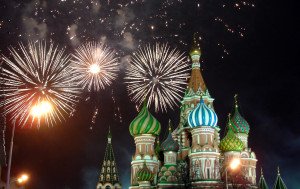 |
|
|
|
|
|
New Year’s Holiday (Bridge Day) |
|
 |
Orthodox Christmas |
|
|
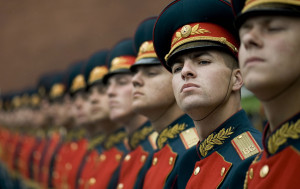 |
|
 |
International Women’s Day |
 |
|
|
|
Public Holiday |
|
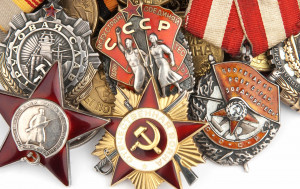 |
|
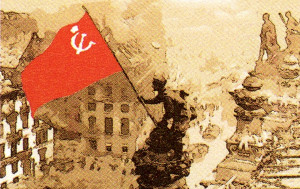 |
Public Holiday (Bridge Day) |
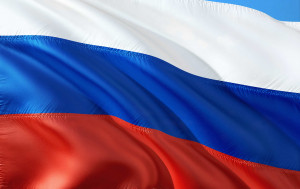 |
|
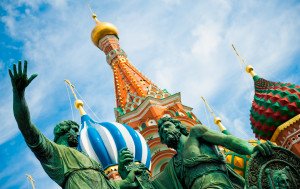 |
Day of Unity |
If a annual public holiday falls on a Tuesday, the Monday will be declared a bridge holiday and a Saturday will be declared a working day as compensation.
Victory Day
May 9 is an official holiday in Russia, Ukraine and Belarus. Falling on the historical date of Nazis Germany’s surrender in 1945, Victory Day is a somber day to commemorate the immense sacrifice of Soviet men and women during the Great Patriotic War (1941 to 1945). It is believed that over 20 million Soviet soldiers and civilians lost their lives in the war, a price largely overlooked in the West, but never forgotten in former Soviet nations.
Every city has an “Eternal Flame” to pay tribute to those who perished. On Victory Day citizens gather to lay flowers in remembrance. Military processions and salutes are also common, particularly in larger cities.
Public Life
New Year’s Day is a national holiday in Russia, in which most businesses and public offices are closed. The Russian Labor Code declares January 1-5 as a non-labor period. If any of these days fall on a weekend, they move to January 6 or January 8 (January 7 is Christmas Day). Schools and universities are usually closed as part of their winter vacation at this time of the year. There may be limited public transport on January 1.
Update: In October 2012, a decree signed by Prime Minister, Dmitry Medvedev changed the dates for the New Year break. Russians will have a 10 day break for New Year, starting Sunday, December 30, 2012 and ending Tuesday, January 8, 2013.
What Do People Do?
Russians may celebrate Unity Day in many ways. Some may lay flowers to the monuments of national heroes, Kuzma Minin and Dmitry Pozharsky, who led a popular uprising that freed Moscow from occupation forces on November 4, 1612.
Russian Orthodox Christians may attend a church service to honor Our Lady of Kazan, one of the most important Russian Orthodox icons. November 4 is this icon’s feast day. The church service usually ends with a procession. Many politicians, public and religious figures stress in televised addresses the need for unity of all ethnic and religious groups in the Russian Federation. Concerts and exhibitions take place on this day.
However, for many Russians, November 4 is just another day off or a substitute for a holiday that was held on November 7 in the Soviet times. Yet others may see it as a call for unity of ethnic Russians against non-Russians. Some ultranationalists and neo-Nazis may have demonstrations on this day.
Background
Unity Day commemorates a Russian popular uprising that freed Moscow from Polish-Lithuanian occupation forces on November 4, 1612. Leaders of the uprising, Kuzma Minin and Dmitry Pozharsky, became national heroes. In 1649, Russian Tsar Alexei Mikhailovich made November 4 (October 22 of the then used Julian calendar) a public holiday. Many Russians celebrated this day until 1917. In 1918, the Bolsheviks replaced it with a new holiday, November 7, to commemorate the Revolution of 1917. November 4 once again became a public holiday in 2005, when the Russian Parliament removed November 7 from the list of official public holidays and introduced Unity Day.
Background
May 1 was a symbol of class struggle in Russia for about 100 years (1890-1990). Workers held annual protests on this day from 1890 to 1917, demanding better work conditions and higher wages. In 1918, May 1 became an important public holiday, known as the Day of the International Solidarity of Workers, in the Soviet Union. Most Soviet cities had parades and obligatory workers’ marches on this day until 1990. The Russian Parliament renamed the holiday as Spring and Labor Day in 1992.
Update: In October 2012, Prime Minister, Dmitry Medvedev signed a decree that would extend the May Day holiday from Wednesday, May 1, 2013 to Sunday, May 5, 2013.
Victory Day

The 9th of May is known as Victory Day. The day of the victory in World War II is an extremely solemn holiday with a salute (firework display) at the end of the day. Even though most of the veterans of WWII are not alive nowadays, there are parades in the centers of each city all over the country, and in the evening there is a traditional salute. This holiday is of special importance to the youth as they learn about the terrible war from the stories fo their grandparents and the importance of peace all over the world. Many people have a meal, gather with family and friends, recall the heroes of the wars and in the evening go downtown to see the salute. Recent years newly established tradition of marches of ‘Immortal Regiment’ have an outstanding number of participants. This is when people parade with portraits of their relatives who fought in World War II. This tradition unites peoples of all ages in many cities and towns of Russia.
What Do People Do?
New Year’s Day is a family holiday for many Russians. Dinner usually starts late on December 31. Traditional meals include Russian salad, herring and sparkling wine. A pre-recorded address by the country’s president appears on TV, listing the achievements of the past year, at 11.55pm (23:55) local time in each of Russia’s time zones. Many people watch his address and raise a toast to the chiming of the Kremlin clock. The Russian national anthem begins at midnight and people congratulate each other and exchange presents. Some people go out to make a snowman or light fire crackers in their backyards.
People may celebrate the day at a friend’s house or attend the fireworks in their city. Celebrations for children include a decorated fir tree and Grandfather Frost, the Russian equivalent of Santa Claus, who gives presents. Grandfather Frost often comes with his granddaughter, Snegurochka (“The Snow Girl”). As things quieten down later in the day, many people visit their friends or relatives. Another tradition is to wish a “Happy New Year” to passers-by throughout January 1.

